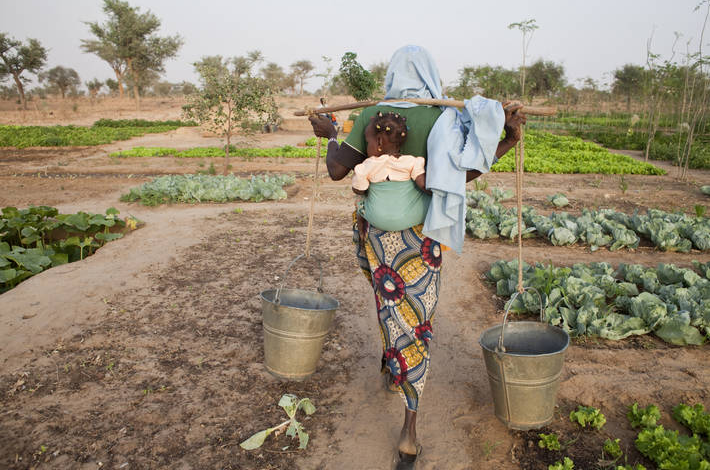A Decade Of Progress In Agriculture Wiped Out, UN Says
Since 2015, the increase in the number of undernourished people globally has subverted all the progresses made during the previous decade, with hunger figures back to 2005 levels, the Food and Agriculture Organisation of the United Nations says.

Efforts made towards achieving eight Sustainable Development Goals have suffered a devastating setback due to adverse socio-economic impacts of conflict and war, the COVID-19 pandemic, and climate change, the UN Food and Agriculture Organisation (FAO) has revealed.
The organisation stated that since 2015, the increase in the number of undernourished people globally has “stalled or even regressed” all the progress made during the previous decade, with hunger figures back to 2005 levels.
Millions of people have shifted from “moderate” levels of food insecurity to “severe” levels.
Pietro Gennari, the FAO Chief Statistician noted that, “while the world was already not on track to achieve the Sustainable Development Goals (SDGs) before 2020, the past two years have seen a series of economic, political and environmental crises that have resulted in a reversal in several economic and social dimensions, including food security and agricultural productivity,”
In a report titled ‘Monitoring progress of SDG indicators related to food and agriculture 2022’ where progress has been made and where further efforts are needed was detailed. For SDG 1 (No Poverty), it noted that global poverty has risen from 8.3 per cent in 2019 to 9.2 per cent in 2020. This is about three years of setback on average in poverty reduction, with low-income countries sinking back eight to nine years.
The report also revealed that the pandemic had already pushed no less than 210 million more people into hunger impeding the achievement of SDG 2 (Zero Hunger), however, the rise has persisted in 2021 due to disruption of food supply chains and economic crash. Nigeria, which was already away from achieving its target is witnessing a deterioration.
Achieving Gender equality (SDG 5) is also facing a downturn. The report disclosed that, though there are more women than men in the agricultural labour force, fewer of them have rights to the land they work on compared to men. In 30 out of 36 countries, within the agricultural population, less than 50 per cent of women hold property rights or secure tenure rights to agricultural land.
Although many countries have taken legislative steps to address gender inequalities, the report warns that substantial progress is still needed to realise women’s land rights in law and in practice.
Access to clean water (SDG 6), Reduced inequalities between countries (SDG 10), Sustainable consumption and production, Conservation of aquatic life (SDG 14), and terrestrial life (SDG 15) has shown no progress towards achieving targets though with variations between countries and regions.
Antonio Guterres, the UN Secretary-General stated that, “the report highlights the need for national governments and the international community to build more resilient agricultural sectors; prevent the increase in hunger in the world and improve the productivity of small farmers; preserve the diversity of plant and animal genetic resources; and build the resilience of food systems.
Flooding and other natural disasters has affected the agricultural sector the most with losses amounting to $15.4 billion in 2020, compared to $6.8 billion for the agricultural sector alone.
Support Our Journalism
There are millions of ordinary people affected by conflict in Africa whose stories are missing in the mainstream media. HumAngle is determined to tell those challenging and under-reported stories, hoping that the people impacted by these conflicts will find the safety and security they deserve.
To ensure that we continue to provide public service coverage, we have a small favour to ask you. We want you to be part of our journalistic endeavour by contributing a token to us.
Your donation will further promote a robust, free, and independent media.
Donate HereStay Closer To The Stories That Matter




